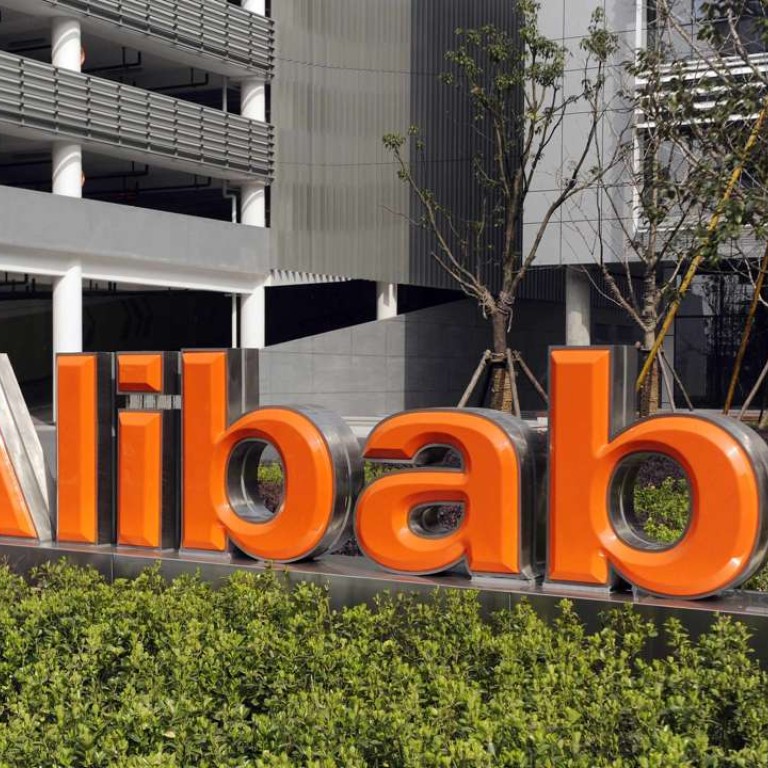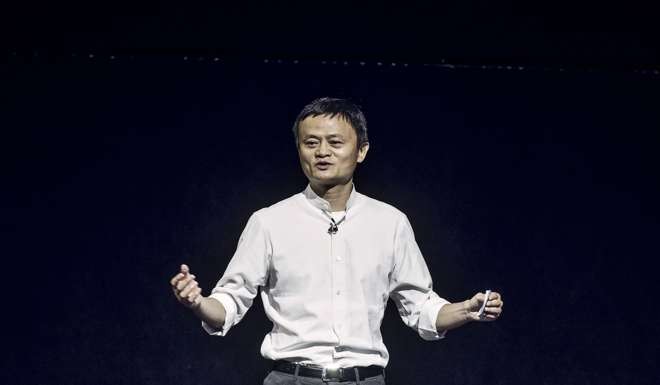
Update | Outdated fintech regulations hurting Hong Kong, Jack Ma says
Ant Financial to pick Hong Kong for IPO only if city is ready for innovation, Alibaba’s founder says
Hong Kong must reform its listing rules to attract new-economy businesses and remain relevant as Asia’s financial hub, said Alibaba Group Holdings’ founder Jack Ma. The city as a destination for the initial public offer of Alibaba’s online payments unit Ant Financial is “not a foregone conclusion,” he said.
Ant Financial, which operates the AliPay e-payment platform, is poised for an IPO to fund its expansion. At issue is whether Hong Kong’s regulatory framework is suitable for companies engaged in financial technology, or fintech, said Ma.
“There’s been a lot of media reports and speculation as to whether [Ant Financial] will list in Hong Kong,” Ma said in a telephone interview with the South China Morning Post. “We will list in Hong Kong only if we think the city is ready.”
“All the existing listing regulations were designed decades ago before the Internet Age for property developers, banks, financiers and traditional retailers, and not relevant to startups and new businesses,” he said.
Of the 343 companies that raised capital in Hong Kong between 2010 and 2013, only 22, or 6 per cent of the total, were technology related, according to the Hong Kong Stock Exchange’s data.
Alibaba chose to list its shares in New York in 2014, in a US$25 billion IPO that was the world’s largest that year. The Hangzhou-based company operates the world’s largest online shopping and e-commerce platform.
Such corporate structures -- along with a dual-share structure -- are prevalent among many technology startups including Facebook, Google and Alibaba, where many company founders hold only small stakes but want to exert control over their corporate mission or culture.
Of the 30 US-listed Chinese companies such as Baidu and Weibo, 29 of them have dual-class structures. Baidu’s founder Robin Li owns only 15.9 per cent of the company but has a voting right of 53.5 per cent.
“The global economic structure has changed, and our existing listing regime must change with it,” said Christopher Cheung Wah-fung, a broker and the Hong Kong lawmaker representing the city’s financial services. “If nothing is changed, all these technology and New Economy companies will list in the US or other overseas markets.”

The competition has taken on added urgency. The Singapore Exchange (SGX) won approval from its listing advisory committee in September to allow companies to list dual-share structures. It may be a necessary measure for Singapore’s bourse, which has attracted few IPOs in recent years.
The US market has shown that such structures can attract big technology startups to list. The top 25 dual-share structure companies including Facebook, Google and LinkedIn in the US have a combined market capitalisation of US$927.42 billion.
To be sure, an Ant Financial IPO in Hong Kong doesn’t need a waiver to the regulator’s principle, since the company isn’t incorporated under a dual-share structure.
Still, an intensive debate and several rounds of public consultation have been underway in Hong Kong since the city missed out on the IPO of Alibaba, which owns the South China Morning Post.
The stock sale would have added much-needed market turnover, giving brokers higher commission income from transactions.
On Monday, US$1.61 billion of Alibaba’s shares changed hands in New York, equivalent to a fifth of the market turnover on Hong Kong’s main board on the same day.
HKEX, the commercial unit of the stock exchange, also missed out on an initial listing fee of HK$650,000 and an annual listing fee of HK$1.9 million.
Ant Financial, through which shoppers on Alibaba’s Taobao and TMall platforms can make payments, is valued at US$60 billion.
“What is lacking in Hong Kong is the spirit of innovation, which regrettably stands in the way of the city realising its goal of becoming Asia’s financial centre,” Ma said. “I’m confident Hong Kong can still claim its place as the financial centre of the region if it carries forward with its reform.”
HKEX in 2014 began consulting the market about various measures to change its listing rules and mechanism, including the possibility of permitting dual-share structures in the city.
The consultation has gone in fits and starts, with the deadline of the latest round that began in June extended until November 18.

